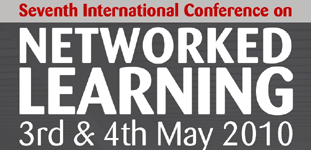

Building understanding of the philosophy of science through immediate and mediated resources
Maarit Arvaja
University of Jyväskylä, Jyväskylä, Finland
Abstract
In order to analyze individual and collaborative learning we need to move from analyzing structures of talk separated from their contexts toward a more contextualized approach for studying learning. This means that in addition to studying cognitive aspects of discourse, we also need to explore how socio-cultural aspects mediate students' discursive activity. The aim of this paper is to explore a contextualized process of students' individual (individual writings) and shared (shared discussion) meaning-making activities during an online philosophy course. Through the 'sociocultural' discourse analysis the focus was on studying how different resources were used in building understanding within the philosophy of science and what kind of understanding the students constructed and reflected through these resources. The results provided insights into different immediate and mediated resources that guided and framed the building of individual and shared understanding. Prior work and discipline-related knowledge or experiences (health sciences) provided the students with mediated resources for understanding the philosophical texts through applying, forming conceptions, or critically evaluating the philosophical knowledge presented in the texts based on their prior social, personal, and cultural knowledge. Students used other students as immediate resources by referring to other students' writings or discussion in elaborating the theoretical conceptualizations further, or they were engaged in building common understanding by sharing their similar work or discipline-related experiences and conceptions or sharing 'collective criticism' toward their own work practices or practices related to their own scientific fields. The asynchronous discussion tool used in the course served as a resource that enabled students to get to know and learn from one another's writings, even though it did not necessarily lead to co-construction of knowledge or sharing of experiences. The resources used also reflected the values, attitudes, conceptions, norms, and practices related to the students' personal, social, and cultural knowledge. Sharing experiences with other students and building on one another's thoughts as well as using one's own experiences as resources in interpretation of the philosophical texts seemed to offer tools for understanding, conceptualizing, and critically evaluating both the philosophical themes studied and the practices of one's own work and those of the science community.
| About NLC | Welcome Messages| Acknowledgwments | Conference Proceedings| Keynote Speakers| Index of Presenting Authors| Contact |